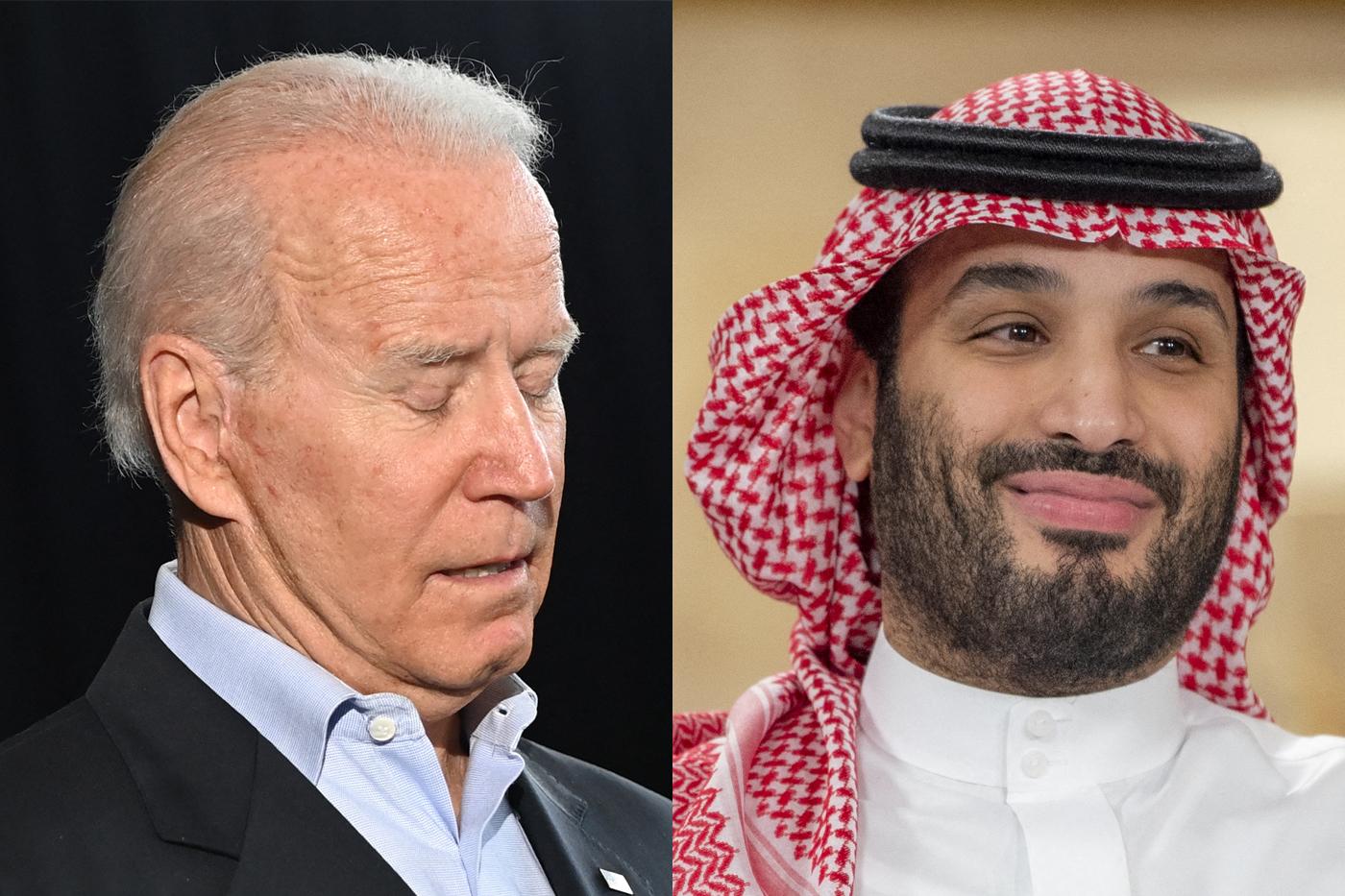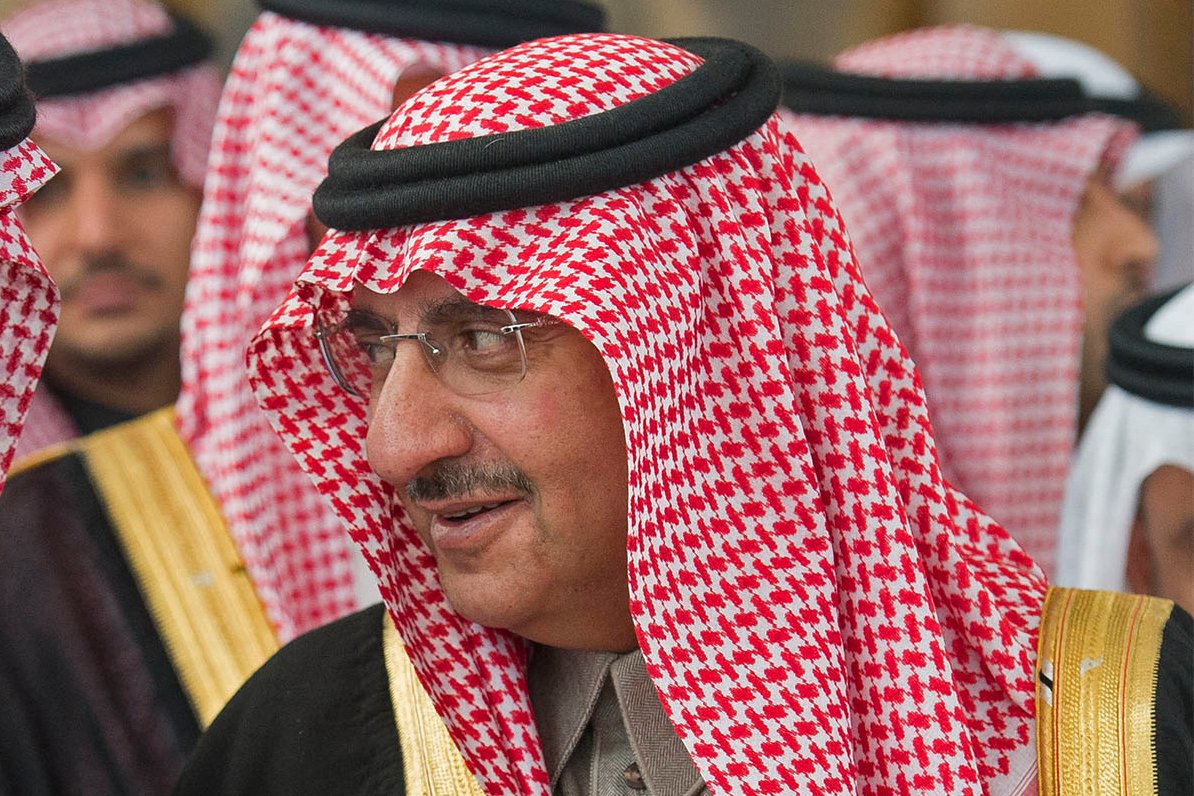
2 July 2021 11:43 UTC
Despite Biden’s rhetoric, American national interests are allied with those of the authoritarian crown prince in Riyadh

In the Middle East in general, and Saudi Arabia in particular, many activists and human right defenders hoped that newly elected US President Joe Biden would turn the page on the Trump era, when rulers in the region had carte blanche to continue their authoritarian practices and repressive measures.
Many hoped that Biden would exert pressure on the US’s most loyal Arab dictators to reverse the tide and respond to calls for democracy, ensure freedom of speech, and halt mass executions.
It is unlikely that Biden will encourage his removal from office or openly challenge his abuse of human rights domestically
But in Riyadh, among other places, such unrealistic wishful thinking is beginning to be dashed. Realpolitik is settling in, to the demise of Washington’s reputation and its endless rhetoric about promoting democracy.
American myths about the country’s own historical position as the leader of the free world, promoter of democratic values and protector of individual rights are always exposed in the Arab world at the hands of none other than its most loyal man in Riyadh. Indeed, Crown Prince Mohammed bin Salman continues his campaign of detentions, executions and surveillance, unchecked by Washington.
Biden slightly embarrassed the crown prince when his intelligence services published a four-page report that held the Saudi ruler responsible for the murder of journalist Jamal Khashoggi, and placed several suspects on a list of sanctioned operatives. The crown prince himself was untouched by these superficial measures.
Loyal prince
Today, Biden and his advisers remain silent on the future of the Saudi crown prince. But American media and think tanks have been promoting his nemesis, former crown prince Mohammed bin Nayef, who has been placed under house arrest and allegedly suffered ill treatment. Ex-CIA officials want their partner in the war on terror back in the driving seat in Riyadh.
How can Washington ignore its loyal prince, who allegedly helped save the lives of Americans as he shared intelligence with US security services, they ask. In this view, it’s an American betrayal of bin Nayef, who provided valuable information that helped to foil terrorist attacks on US soil.
Once the darling of the CIA, bin Nayef is now helpless without the US pushing for his release, let alone his rehabilitation, as its man in Riyadh. This sounds like a familiar story: use the man in Riyadh, then dump him when he faces his fate at the hands of his kinsmen.

In fact, Biden should resist calls to bring back the deposed prince, who never stopped using violence against peaceful activists and put them on trial in the terrorism courts that he established. Mohammed bin Nayef used the pretext of the war on terror to spread fear and torture. His most famous victims included founders of the Saudi Civil and Political Rights Association – activists such as Abdullah al-Hamid, who died in prison, and Sulaiman al-Rashoudi. Activist Waleed Abu al-Khair remains in prison, alongside many others.
Many of the men and women Mohammed bin Nayef put in prison have been subjected to solitary confinement. Perhaps the arrest of the former crown prince by the current crown prince fulfilled the hopes of those who suffered at his hands for years – but unfortunately, they had no power to arrest him, put him on trial or seek justice.
Perverse revenge
In his own way, Mohammed bin Salman is punishing the deposed prince, but for different reasons. When the mafia fights its own battles within its own rank-and-file, the weakened society may achieve some perverse sense of revenge that is momentary and emotional.
But both Mohammed bin Nayef and his empowered cousin, the crown prince, need to be put on trial for crimes against their own citizens. US intelligence services obviously want the devil they know, but many Saudis want justice for their lost sons and tortured relatives, who either linger in prison or have already been executed. Many of their corpses have yet to be returned to their relatives for proper burial. Biden must end Trump’s alliance with Mohammed bin Salman
Many of Mohammed bin Nayef’s old cronies and right-hand men are not only free, but have the gall to protest – among them Saad al-Jabri, who escaped to Canada and is now facing a court case for allegedly stealing billions of dollars when he was in charge of purchasing anti-terrorism and surveillance technology. The court case may shed new light on how the opaque and corrupt interior ministry conducted its affairs and plundered billions under the pretext of fighting terrorism.
The day will come when the prosecutor, Mohammed bin Salman, will himself face a similar fate for his crimes against activists and dissidents. For now, the Biden administration remains silent on the crown prince’s present and future. It is unlikely that Biden will encourage his removal from office or openly challenge his abuse of human rights domestically.
So far, Biden has a better record on pushing the crown prince to temper his adventurist foreign policies. It is easier for Biden to force him to seek reconciliation with Qatar, offer a peace treaty to Yemen’s Houthis, flirt with Iran via Iraq, and endear himself to Turkish President Recep Tayyip Erdogan.
But when it comes to political reforms, a muted US is neither willing nor able to see the merits of promoting a process that will eventually lead the kingdom on a path to democracy. At the moment, US national interests are allied with those of an authoritarian crown prince, so why rock the boat.
The views expressed in this article belong to the author and do not necessarily reflect the editorial policy of Middle East Eye.
Madawi al-RasheedMadawi al-Rasheed is visiting professor at the Middle East Institute of the London School of Economics. She has written extensively on the Arabian Peninsula, Arab migration, globalisation, religious transnationalism and gender issues. You can follow her on Twitter: @MadawiDr
Recommended
Filed under: American crimes, Ansarullah, House of Saud, Yemen | Tagged: Biden’s Foreign Policy, Human rights violation, Khashoggi’s Killing, Madawi al-Rasheed, MBS, Mohammed bin Nayef, Saudi Oppression, Saudi Zionist entity, Saudi-led war on Yemen |
Related posts:
Views: 0
 RSS Feed
RSS Feed

















 July 7th, 2021
July 7th, 2021  Awake Goy
Awake Goy  Posted in
Posted in  Tags:
Tags: 
















